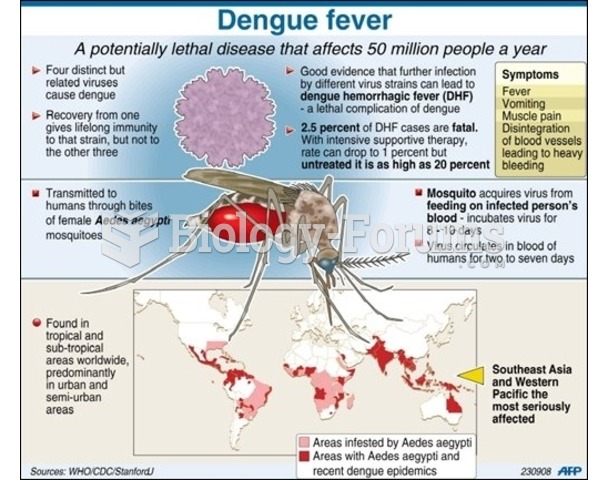|
|
|
Earwax has antimicrobial properties that reduce the viability of bacteria and fungus in the human ear.
The top 10 most important tips that will help you grow old gracefully include (1) quit smoking, (2) keep your weight down, (3) take supplements, (4) skip a meal each day or fast 1 day per week, (5) get a pet, (6) get medical help for chronic pain, (7) walk regularly, (8) reduce arguments, (9) put live plants in your living space, and (10) do some weight training.
Acetaminophen (Tylenol) in overdose can seriously damage the liver. It should never be taken by people who use alcohol heavily; it can result in severe liver damage and even a condition requiring a liver transplant.
The Romans did not use numerals to indicate fractions but instead used words to indicate parts of a whole.
The B-complex vitamins and vitamin C are not stored in the body and must be replaced each day.







